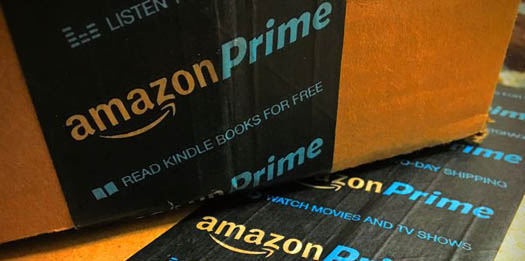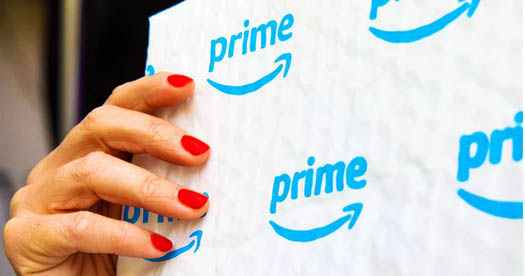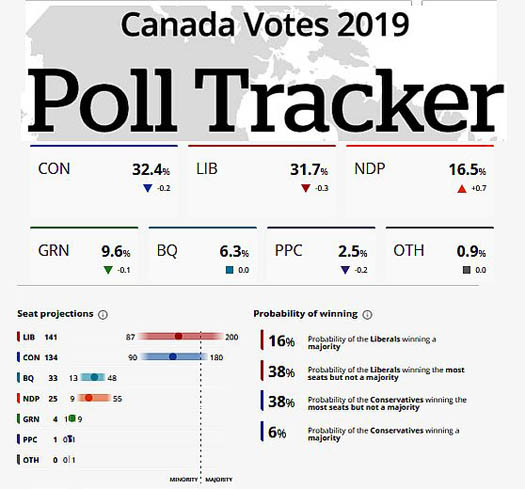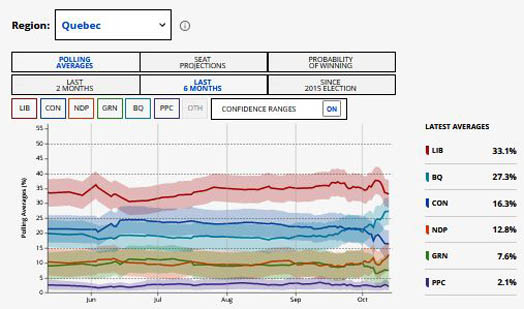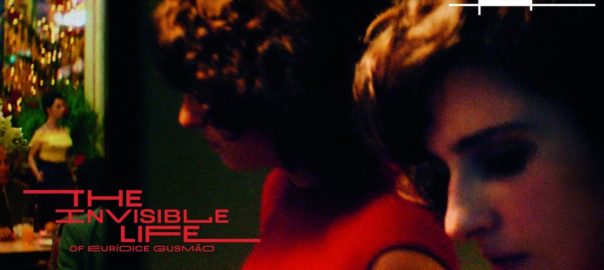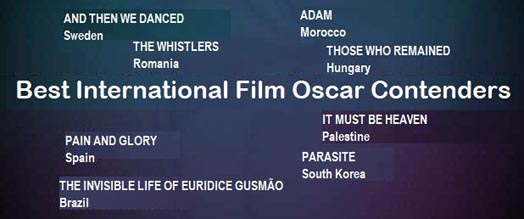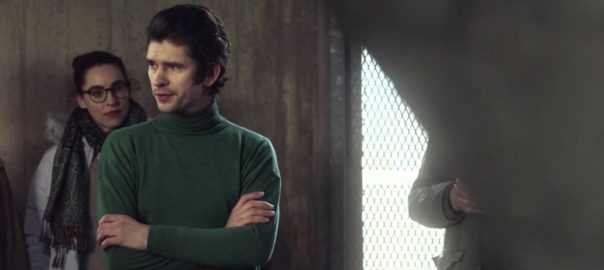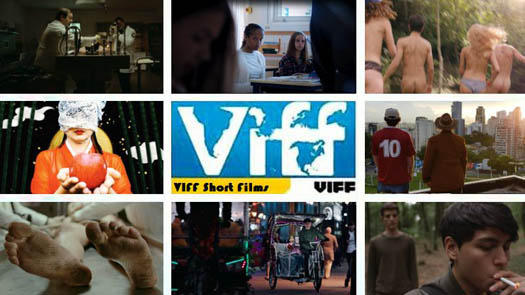
For the 2020 Oscars, the Academy of Motion Picture Arts and Sciences earlier this year voted to change the name of the Oscar award traditionally known as Best Foreign Film to Best International Feature Film, because as Larry Karaszewski and Diane Weyermann, co-chairs of the International Feature Film Committee told the press: “We have noted that the reference to ‘foreign’ is outdated within the global filmmaking community.”
In 2019, countries across the globe had until October 1st to submit a film for Best International Feature Film Oscar consideration. In 2018, 87 films were brought forward for adjudication. In 2019, a record of 93 films from countries across the globe were submitted to the Academy of Motion Picture Arts and Sciences, a list that will be winnowed down throughout November and December — until 5 am Monday, January 13th, 2020, when the Academy will make its annual Oscar announcement, leaving five nominated films remaining in the Best International Feature Film category.
Below, a list of all the international films submitted to the Academy for consideration, and on the screening schedule of VIFF 2019.

The Invisible Life Of Eurídice Gusmão | Brazil | Karim Aînouz
This year’s Cannes’ prestigious Un Certain Regard winner, here’s what VIFF 2019’s programme has to say about The Invisible Life of Eurídice Gusmão:
Karim Aïnouz’s (Madame Satã) stylish, colour-saturated “tropical melodrama” tells the story of two sisters, proper EurÍdice (Carol Duarte) and freedom-loving Guida (Julia Stockler), in 1950s Rio de Janeiro who are divided by their father’s duplicitous misogyny. Pure pleasure for the eyes and told from a decidedly feminist slant, this is a tale of “high emotion articulated with utmost sincerity and heady stylistic excess, all in the perspiring environs of midcentury Rio de Janeiro.”
This is Brazil’s 49th submission with four previous nominations; Keeper of Promises in 1962, 1995’s O Quatrilho, 1997’s Four Days In September and Central Station in 1998.
Screens at 9pm, on Monday, October 7th, at The Centre, and again the next day, Tuesday, October 8th, 2:45pm, at the Vancouver Playhouse.
Spider | Chile | Andrés Wood
From the VIFF online description of Chile’s official Oscar entry …
Andrés Wood, director of Machuca, one of VIFF’s biggest ever hits, returns to the defining event in modern Chile’s political history — Pinochet’s 1973 coup d’état — but this time in a dark thriller mode. In 1973, Inés (María Valverde), her husband Justo (Gabriel Urzúa), and her lover Gerardo (Pedro Fontaine), all members of a violent right-wing group, pull off a political crime that changes the course of history. Forty-odd years later, Inés (now played by Argentinean legend Mercedes Morán) is a successful businesswoman, but Gerardo (now Marcelo Alonso), motivated by revenge and obsession, wants to restart the nationalist movement of their collective past, a past that Inés and Justo (now Felipe Armas) are desperate to keep hidden …
One might think Chile is long past Pinochet, but Woods puts paid to that romantic notion. Through his depiction of a love triangle gone bad, the entitlement of the privileged, the perverse idealism of the right, and the cruelty and greed fuelling so much of Chile today, he fashions a painfully twisted tale that suggests that although Pinochet is gone, his shadow lingers on …”
Screens at 9pm, on Monday, October 7th, at The Centre, and again the next day, Tuesday, October 8th, 2:45pm at the Vancouver Playhouse.
The Painted Bird | Czech Republic | Václav Marhoul
Václav Marhoul’s “stunning adaptation of Jerzy Kosiński’s controversial 1965 novel/memoir” caused mass walkouts when it screened at the Venice Film Festival, and more than a few walkouts at TIFF, for this blistering, bracingly defiant and emotionally plangent film that is rife with uncompromising, unvarnished brutality (murder, rape, torture, bestiality) that, as Deborah Young writes in her THR review of the film, “doesn’t begin to convey the emotional scope of this tender, bruising, exuberant film.”
Stayed tuned. According to VIFF, there are no further events scheduled at this time. Perhaps Tom Charity will bring it back to the Vancity Theatre.
Queen of Hearts | Denmark | May el-Toukhy
Director and co-writer May el-Toukhy offers a master class in how to shoot a blossoming physical attraction. From shy touching while trying to find the perfect spot for the “world’s smallest tattoo”, to the frankly explicit sex that actually seems sexy … to confuse matters, though, Queen of Hearts explores the inappropriate relationship involving a middle-aged lawyer’s twisting, highly-charged sexual tryst with her troubled teenage stepson, the film on the one hand an impossibly glamorous, sexually charged and immoral melodrama and on the other a subtle Sirkian, almost Hitchcockian tragedy that explores the wages of familial sin and deceit, all while peeling back the veneer of ultra-civilized Scandinavian society. Not to be missed.
Screens at 9:15pm on Monday, October 7th, at the Vancouver Playhouse.
Les Misérables | France | Ladj Ly
Winner of the Jury Prize at Cannes this year, Ladj Ly’s Les Misérables — débuting at VIFF 2019 as part of the Spotlight on France series — emerged as one of Jeff Wells’ (Hollywood Elsewhere) favourite films at Cannes this year, a film he describes as “explosive, urgent, furious, riveting, breathless and impactful,” and about which VIFF’s festival guide says …
Set in the same suburban Paris neighbourhood, Montfermeil, used by Victor Hugo as the location for the Thénardiers’ Inn in his Les Misérables, débuting director Ladj Ly’s gripping, incendiary police-thriller gives us a young cop, Stéphane (Damien Bonnard), who joins an Anti-Crime Squad team led by loose cannon Chris (co-writer Alexis Manenti, superb) and is soon immersed in a world of poverty and internecine power struggles. When images of police brutality start circulating, the shit hits the fan…
Quite simply, Ladj Ly’s Les Misérables is not to be missed.
Screens at 6:30pm (today), Wednesday, October 2nd, at the Vancouver Playhouse, and for a final time at VIFF 2019, next week, on Thursday, October 10th, 4pm, at International Village 9.
Those Who Remained | Hungary | Barnabás Tóth
A smash hit at Telluride, director Barnabás Tóth’s lyrical story of the healing power of love in the midst of national conflict, lost and trauma, Those Who Remained reveals the healing process of Holocaust survivors through the eyes of a young girl in post-World War II Hungary.
After an extensive shorts career, Tóth’s feature début focuses on 42-year-old doctor and concentration camp survivor Aldo, his new friendship with 16-year-old Klara, and the suspicion it brings in Soviet Hungary. The country recently won the foreign-language award for Lázló Nemes’ Son Of Saul in 2016, with one other win for Istaván Szabó’s Mephisto in 1982.
Those Who Remained will screen two more times at VIFF 2019: on Saturday, October 5th at 7pm, at SFU Goldcorp; and for a final time, on Thursday, October 10th at 11:15am, at the home of the festival, the Vancity Theatre.
A White White Day | Iceland | Hlynur Pálmason
Rigorously charting the fracturing of a grieving former police detective’s world as he comes to suspect that his late wife, who died in a strange car accident, was having an affair with a younger colleague, this deeply unsettling and grimly hypnotic second feature by Icelandic writer-director Hlynur Palmason, A White White Day won both the Louis Roederer Foundation Rising Star Award and Critics’ Week prize at Cannes 2019.
As Lisa Nesselson writes in her review of the film in Screen Daily …
A White White Day is an exquisite, complex, visually arresting and emotionally rewarding film, the tug of the splendidly varied landscape in this film both internal and external in a manner that would be hard to pull off in a dense urban setting, the pleasingly off-kilter string score a plus, and the trajectory of the film percolating from tender — the protagonist’s relationship with his granddaughter — to robustly no-nonsense, offering the viewer throughout with a flesh and blood catalogue of ways to be masculine, to be human, and how to grieve.
The film’s title refers to an Icelandic proverb suggesting that on days so “white” that the earth meets the sky, the dead can communicate with those still living.
Screens at 4pm on Monday, October 7th, at International Village 9.
Adam | Morocco | Maryam Touzani
Adam is a deceptively small story about elemental themes, most specifically the beauty and mystery of motherhood. First-time feature filmmaker Maryam Touzani has dedicated the movie to her own mother, and indeed this is a kind, resonant portrait of two women — one who is a mother and one who is reluctantly about to become one. Deft performances from Lubna Azabal and Nisrin Erradi add heart and soul to this slender chronicle of a de facto family learning to rely on one another.
Screening in Un Certain Regard at Cannes this year to much deserved acclaim, One of Adam’s central pleasures is its calm arrival at fundamental truths about how women nurture and provide — even when they themselves receive little of the same.
Screens today, Wednesday, October 2nd, at 8:30pm, at the Vancouver Playhouse (remember: Les Misérables screens at The Playhouse at 6:30pm — kinda makes for a perfect Wednesday night double bill, don’tcha think?).
It Must Be Heaven | Palestine | Elia Suleiman
This is Suleiman’s second submission for this award; he also directed Palestine’s first-ever entry, 2003’s Divine Intervention. Starring the director himself alongside Ali Suliman, François Girard, and Gael Garcia Bernal, It Must Be Heaven tells the story of a man who escapes his native Palestine for a new life only to face the same challenges. It played in Competition at Cannes this year. This is Palestine’s twelfth submission for the award, having been nominated twice in 2006 for Paradise Now and 2014 for Omar.
It Must Be Heaven screens twice at VIFF 2019, both times at Cinema 10, International Village, on Saturday, October 5th 9:30pm, and Monday, October 7th at 1:45pm.
The Whistlers | Romania | Corneliu Porumboiu
Cannes 2019 Competition title The Whistlers follows Cristi, a corrupt police officer and whistle blower for mafia, who flies to the Canary Islands to free Zsolt, a crooked businessman. Under police surveillance, Cristi sets about to encourage Zsolt to reveal where he’s hidden 30 million euros.
Ready to give festival audiences a taste of his brand of bone-dry black comedy satirizing bureaucracy and corruption in post-Ceauçescu Romania, Corneliu previously won the Palme d’Or for 12:08 East Of Bucharest in 2006. This is Romania’s 25th submission, with no previous Oscar nods.
The Whistlers will screen three times at VIFF 2019: at 2pm on Friday, October 4th at Cinema 10, International Village; on Monday, October 7th at 6:45pm at the Rio Theatre; and for a final time on Wednesday, October 9th at 4pm, again at Cinema 10, International Village.
Beanpole | Russia | Kantemir Balagov
In this richly burnished, occasionally harrowing rendering of the persistent scars of war, two women, Iya and Masha (astonishing newcomers Viktoria Miroshnichenko and Vasilisa Perelygina), attempt to readjust to a haunted post-WWII Leningrad.
And, according to the VIFF 2019 programme guide …
An unforgettable take on war’s human costs, Russian wunderkind and former student of Alexander Sokurov Kantemir Balagov’s visually poetic and beautifully photographed drama is set in a Leningrad of near-intolerable privation in the aftermath of Russia’s WWII “victory.” Lanky nurse Iya (Miroshnichenko), nicknamed “Beanpole” for her tall, thin body, works in a hospital and suffers PTSD-related seizures that leave her unconscious. When fiery Masha (Perelygina), the woman soldier Iya worships, returns from the frontlines, their intense relationship — tinged by a tragedy that occurs during one of Iya’s episodes and subject to the many horrors both of them have lived through – takes centre stage. As the desperate citizenry scrambles to survive, can the women return to a life even resembling normalcy?
Balagov elicits amazing performances from Miroshnichenko and Perelygina, both newcomers to the screen, and elevates Nobel laureate Svetlana Alexeievich’s stories of Russian women’s experiences during WWII – his inspiration for the film – to understandably harsh and yet ethereally beautiful heights. Beanpole is a remarkable work for anyone to have made, let alone for someone only 28 years old.
“Exceptionally crafted, devastating… ferocious, and extraordinary… [It] marks the undeniable arrival of Kantemir Balagov as a major talent…” — Jessica Kiang, Variety
FIPRESCI Prize, Un Certain Regard, Cannes 19
Screens twice next week, on Wednesday, October 9th at 6:15pm, International Village 10, and on the final day of VIFF 2019, on Friday, October 11th, 12:45pm, at the Vancity Theatre.
Atlantics | Senegal | Mati Diop
Most films that chronicle the plight of Africans undertaking the treacherous traversing of the Atlantic in search of better lives tend to be male-centric and grounded in stark realism. Mati Diop’s “Atlantics” upends that archetype, and harnesses fantasy and social relevance to tell a haunting story that focuses on the women who are often left behind. It’s one of the most original films of the year, and should continue to generate intrigue at both NYFF and VIFF en route to its Netflix launch.
Along the Atlantic coast, a soon-to-be-inaugurated futuristic tower looms over a suburb of Dakar, Senegal, but the construction workers haven’t been paid for months. Seventeen-year-old Ada (Mama Sané) is in love with Souleiman (Ibrahima Traoré), one of the construction workers, but has been promised to another man by her family. One night, the workers (including Souleiman) decide to leave the country by sea, in search of brighter futures. Whether they make it is a mystery.
Several days later, a fire ruins Ada’s wedding. Meanwhile, a mysterious fever starts to spread with incalculable ramifications. The strange, poetic circumstances keep piling up. “Atlantics” is a fantastical blend of romance and socio-political commentary at once, laced together by a surreal dreamscape.
But above all, this is a story about an impossible love, destroyed by injustice. Not since Diop’s own uncle, director Djibril Diop Mambety, made the seminal “Touki Bouki” has cinema seen an African couple worthy of the tragedy that is “Romeo and Juliet.” Diop made history when the film premiered at Cannes earlier this year — becoming the first black woman to direct a film featured in the festival’s Competition section. It won the Grand Prix, kicking off a festival run that will come to a head when it arrives at NYFF and VIFF with much-deserved hype.
Screens at 9:15pm, Wednesday, October 7th, Rio Theatre.
Parasite | South Korea | Bong Joon-ho
The 2019 Palme d’Or-winning Parasite chronicles the relationship between the wealthy Park family and the impoverished Kim family and the influence of greed and discrimination on it. The film stars Song Kang-ho, Lee Sun-kyun, and Cho Yeo-jeong. This marks the 31st submission from South Korea with no nominations yet; Bong was the first Korean director to receive the top Cannes prize earlier this year.
Parasite will screen once more at VIFF 2019, on Sunday, October 6th, 9pm at The Centre.
Pain and Glory | Spain | Pedro Almodóvar
With his seventh time representing Spain in the international feature category, Almodóvar sets a new record for the country, ahead of José Luis Garci’s six occasions. Cannes 2019 Competition title Pain and Glory reunites him with regular collaborators Antonio Banderas (who won Best Actor on the Croisette) and Penélope Cruz for the autobiographical story of a director looking back at his life and career. Spain has four wins and 15 nominations for the international award, including Almodóvar’s All About My Mother win in 2000, and Alejandro Amenábar’s nomination for The Sea Inside in 2005.
Pain and Glory will screen at 6pm, Wednesday, October 9th at The Centre.
And Then We Danced | Sweden | Levan Akin
In this Cannes Directors’ Fortnight 2019 title, a dancer’s training at the National Georgian Ensemble with his partner Mary is disturbed by the arrival of Irakli. Lead actor Levan Gelbakhiani won the Best Actor prize at the Sarajevo Film Festival. Ana Javakishvili and Anano Makharadze co-star. Sweden has been nominated for this award 16 times, with Ingmar Bergman winning their three awards for The Virgin Spring in 1961, Through a Glass Darkly in 1962 and Fanny and Alexander in 1984. This is Akin’s second feature film after the 2015 film The Circle.
No further VIFF 2019 screenings are scheduled at this time.

|
|
Well, that’s it for now for our full weekend coverage of the probable Oscar contenders that are set to screen this year at the 38th annual Vancouver International Film Festival. All VanRamblings’ VIFF 2019 columns may be accessed by clicking on the graphic above.
